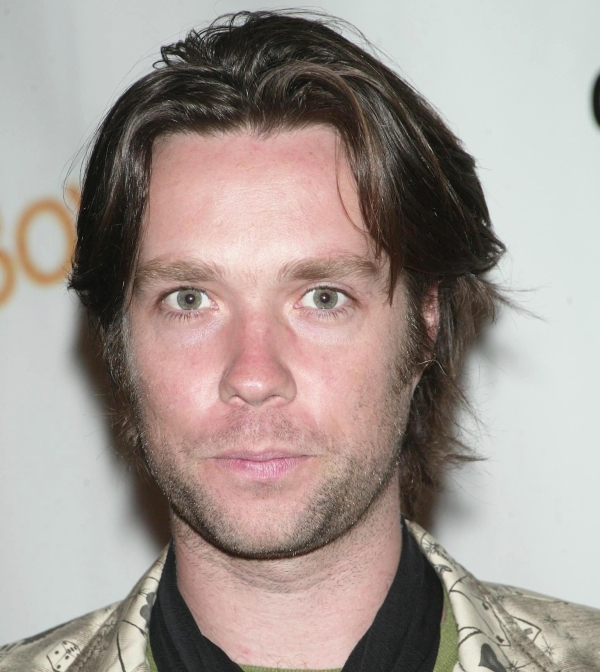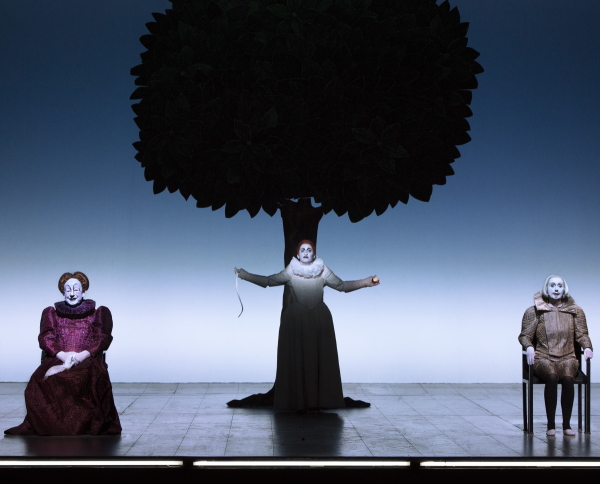Rufus Wainwright Inches Closer to the Theater — With a Musical Adaptation of Shakespeare's Sonnets
The acclaimed singer-songwriter collaborates with the legendary Berliner Ensemble on this avant-garde take on the legendary poems.

(© Joseph Marzullo/WENN)
One of the more intriguing collaborations to come to the stage this season involves four vastly different entities: the Grammy-nominated singer-songwriter Rufus Wainwright, the lauded avant-garde stage artist Robert Wilson, the legendary German theater company the Berliner Ensemble, and the man widely considered to be the greatest playwright who ever lived, William Shakespeare.
Together, the quartet has devised a piece called Shakespeare's Sonnets, a gender-queer pop opera that brings 25 of the Bard's poems to the stage in a variety of forms. After premiering in Germany in 2009, the show comes to Brooklyn Academy of Music from October 7-12 as part of the 2014 Next Wave Festival. Just how did Wainwright, whose extensive catalog defies labeling, come to be involved with the production? He shared his thoughts on the subject in a phone conversation from Rome, where he's already putting together his next venture.
How did you get involved with Robert Wilson and the Berliner Ensemble?
Essentially, I was about to write my first opera, Prima Donna, for the Manchester Festival. I'd never written anything for the theater before, so I thought it might be good to try something out beforehand. In my mind, it was some little two-bit production in New Jersey to get my feet wet. Next thing I know, I was working with Robert Wilson and the Berliner Ensemble doing Shakespeare. Needless to say, it was baptism by fire. I've known Bob for years and I certainly know who Shakespeare is, but I'd never been around the Berliner Ensemble. The whole thing was certainly a wallop. And I think I survived. [laughs]
What was your jumping off point — your way into the project?
I did have this idea — this was my concept at the beginning of the process — the reversal of the sexes was the starting-off point…i.e., having women play men and men play women. Therefore, Shakespeare would be female, the young boy would be female, and Queen Elizabeth would be a big man. [laughs] A lot of the pieces we were writing that pertained to the male sex were actually [written] for a woman, so we started with that. It was very old-fashioned; it's how Shakespeare was originally done [with men playing female characters]. Much like Robert Wilson, we focused a lot on light — darkness and light, love and hate, and the shadows that the world goes through, emotionally and figuratively.
How was it to see it for the first time, when it was originally staged in 2009?
It was pretty intense. My mother [singer Kate McGarrigle] was very ill at the time. She was in the hospital in Montreal and I was in Berlin, so I couldn't really be with her. A lot of the emotions I was experiencing were reflected into the music…Certainly when I saw it, it was an emotional experience. Bob has this incredible ability to pick up on the subconscious…and show them to you after the fact. [He] really pinned what I was going through in my personal life that I didn't want to think about too much.
Is it hard to collaborate with William Shakespeare as your lyricist?
It's famously hard, apparently, they say. I don't find it that hard, at least, the sonnets. I also have a reverence for Shakespeare, and I tend to just let his rhythms take the lead. I don't think about it too much, in other words. There's no point in intellectualizing Shakespeare; he's already done that for you. I've decided to make it as natural and organic as possible, in a strange way.
Are there many connections between the music you've written and the Shakespeare you've discovered?
Yes. With the Sonnets…especially dealing with their couplets at the end, you have to take the piece somewhere that gives it an enlightenment. There's a point that you have to touch where you are made wiser and more truthful or even sadder. Often, it begins in the opposite place of where you end up; it'll start happy and end up sad, or start sad and end up happy — all the emotions in between you have to climb to get to where you are going.
Would you like to write a full Broadway musical — or appear in one?
I'm writing another opera, Hadrian. That's why I'm in Rome. When I did Prima Donna and the Sonnets, I sensed this desire in me to maybe do two big projects at once. As long as you have the time, the energy, and the money, if you get sick of one, you can take a break once in a while and move onto the other. So I wouldn't be surprised if another theatrical exploit fell in my lap. There's been a lot of offers. It's nice to offset opera, because it's pretty heavy.
Well, we're hoping it's sooner rather than later.
I'm zeroing in, don't worry. I'll land at some point.

(© Lucie Jansch)










